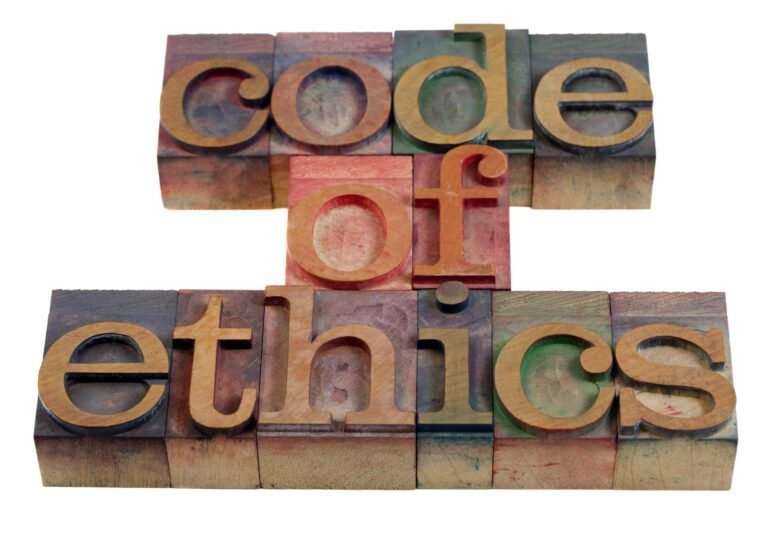An employer’s breach of an anti-retaliation policy in a Code of Ethics can potentially give rise to a breach of contract claim. And depending upon the whistleblower’s specific disclosure to their employer, the whistleblower may have a claim under federal or state whistleblower protections laws.
In early 2015, a federal district court held that an employer’s anti-retaliation policy created legally enforceable rights. See Leyden v. Am. Accreditation Healthcare Comm’n, 83 F. Supp. 3d 241, 247–48 (D.D.C. 2015). In Leyden, the trial court held that the plaintiff had a valid claim based on the employer’s alleged violation of its internal anti-retaliation policy. The court relied on law construing whether employee handbooks created implied contractual rights.
In Leyden, the plaintiff was the Chief Accreditation Officer at the American Accreditation Healthcare Commission, a nonprofit offering accreditation and certification programs to healthcare entities. The defendant had an anti-retaliation policy, which stated: “No URAC employee who in good faith reports any Improper Activities in accordance with this policy shall suffer, and shall be protected from threats of harassment, retaliation, discharge, or other types of discrimination.” The plaintiff voiced concerns that new management was mistreating female executives and that two board members were engaged in conduct that she thought jeopardized the organization’s independence. The defendant then terminated the plaintiff’s employment.
The defendant moved to dismiss the complaint, arguing in relevant part that the anti-retaliation policy did not create contractual rights. Even if it did, the defendant contended, it had disclaimed any such rights in its employee handbook.
However, the court held that the anti-retaliation policy created an implied contract. Id. The court began by reviewing Strass v. Kaiser Foundation Health Plan, a case holding that an employee handbook created an implied contract. Id. at 247 (citing Strass v. Kaiser Found. Health Plan, 744 A.2d 1000 (D.C. 2000)). The court discussed how a manual could create rights, and how an employer could effectively disclaim those rights. Id. The court also rejected the defendant’s argument about the disclaimer, noting that a disclaimer that was “rationally at odds” with the other language in the document may not cut off an implied contract. Id.
In finding an implied contract, the court focused on the employer’s invitation to report “Improper Activities” internally and on the language of the anti-retaliation policy. Id. The court also concluded that the employer’s disclaimer, which was found in a different document, was rationally at odds with the anti-retaliation policy. Id. The reasoning in Leyden may be persuasive in other jurisdictions and provide an important remedy to whistleblowers that are not covered under federal or state whistleblower protection statutes.
However, at least one district court rejected Leyden’s reasoning. On June 22, 2016, the U.S. District Court for the Southern District of New York held that an employer’s code of conduct was not a contract because it “states that it is ‘not a contract of employment’ and that nothing in the company’s policies ‘should be construed as a promise of any kind, or creating a contract regarding wages or other working conditions.’” Diaz v. Transatlantic Reinsurance Co., No. 1:16-cv-01355, slip op. at 12–13. The court held that the employer’s senior officer code of conduct, by extension, was not a contract because the code of conduct, which included an adequate disclaimer, applied to the entire “Corporation and its subsidiaries worldwide.” Id.
In Diaz, similar to Leyden, the defendant’s manuals contained anti-retaliation provisions. Specifically, its code of conduct stated that the company was obligated to “prevent retaliation against any employee who, in good faith, voices concerns, reports violations, or participates in an investigation,” and its senior officer code stated that the company “will not tolerate retaliation for violations of this Code made in good faith.” Id. at 11. Furthermore, according to the plaintiff, the senior officer code “encourage[d] employees to report potential violations, including conflicts of interest.” Id. at 5.
As discussed above,[1] Ileana Diaz reported a potential conflict of interest involving the executive vice president. Diaz alleged that she suffered harassment and adverse actions after making this report. Id. at 5–6.
In addition to alleging retaliation under SOX, Diaz alleged a breach of contract based on Transatlantic’s violations of the anti-retaliation provisions in its code of conduct and senior officer code. Transatlantic moved to dismiss pursuant to Federal Rule of Civil Procedure 12(b)(6), arguing that Diaz failed to state a claim. The district court agreed with Transatlantic, turning to New York precedent that “employment guides or codes of conducts [sic] may not provide the basis for breach of contract claims when they contain language of disclaimer.” Id. at 12 (citing Lobosco v. N.Y. Tel. Co./NYNEX, 751 N.E.2d 462 (N.Y. 2001)). The court accepted Transatlantic’s disclaimer and concluded that its code of conduct and senior officer code were not contracts. Therefore, those codes could not form the basis of Diaz’s breach of contract claim, and the court granted Transatlantic’s Rule 12(b)(6) motion. See id. at 12–13.
Whistleblower Retaliation Lawyers
The experienced whistleblower retaliation lawyers at Zuckerman Law represent whistleblowers under federal and state whistleblower retaliation laws.
If you are seeking representation in a whistleblower protection case, click here, or call us at 202-262-8959 to schedule a free preliminary consultation.






Download our free guide to the Sarbanes-Oxley whistleblower protection law:



